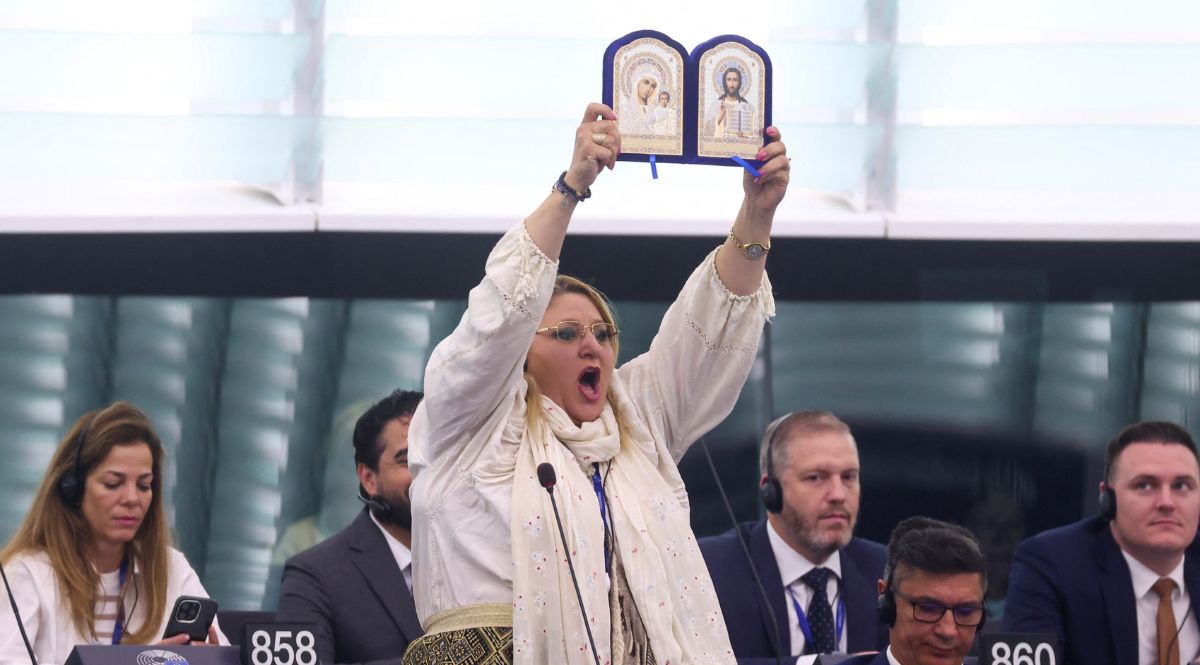Constitutional Court Nullifies Romania's Presidential Election
On 6 December, less than two days before the second round, the Constitutional Court of Romania (CCR) unanimously annulled the presidential election. It cited as a reason the fraudulent campaign by anti-Western nationalist Călin Georgescu, possibly supported by Russia. Unexpectedly, Georgescu had the best result in the first round of the election on 24 November, although he was an almost unknown figure only a few weeks earlier. The case of Romania’s failed election is proof of Russia’s ability and willingness to interfere in the democratic processes of Western countries, including Poland.
.png) Louisa Gouliamaki / Reuters / Forum
Louisa Gouliamaki / Reuters / Forum
What are the implications of the court’s decision?
The CCR ordered the election to be repeated from the beginning. This means that the candidates must re-register, including collecting petitions with at least 200,000 supporters. Contrary to the demands of some in the pro-Western camp, the court did not ban Georgescu from running again. It is uncertain whether the decision also allows the extremist Diana Şoşoacă of the S.O.S. România party to run again. Her candidacy was invalidated by the CCR in October due to her anti-Semitic and fascist declarations. Her backers then supported Georgescu in the first round. A date for the new election will be set by the incoming government, but with ongoing coalition negotiations and the time needed for candidate re-registration and campaigning, it may not be until spring 2025. President Klaus Iohannis’ term will be extended until the new head of state is sworn in.
On what basis did the CCR make its decision?
The court reviewed reports by Romanian special services presented on 28 November to the Supreme Council of National Defence, a specialised security coordination body, and declassified by Iohannis on 4 December, in deciding to re-run the election. According to the services, Romania has been the target of an “aggressive Russian hybrid operation”. The success of Georgescu’s campaign came with serious violations of the law and coordinated support from a “state entity”. Evidence includes that, despite declaring zero expenditures on his campaign, he received more than €1 million in donations and had about 25,000 paid accounts and more than 100 influencers (with a combined 8 million-plus followers) working on his behalf on TikTok. On election day, Romania’s electronic electoral infrastructure came under about 85,000 cyberattacks, although none was successful. Based on such information, the CRR—directly invoking the constitution—dealt with the case on an ex officio emergency basis, even though it had initially approved the first round of the elections on 2 December and the deadline for complaints about that round had passed.
How was the court’s decision received by the Romanian political class and public?
The CCR’s decision was supported by Prime Minister Marcel Ciolacu of the Social Democratic Party. It was also considered necessary by the National Liberal Party, a former co-ruling, pro-Western faction likely to be a part of the new grand coalition after the 1 December parliamentary elections. The court’s decision was seen as a judicial coup by Georgescu and the extreme Alliance for the Union of Romanians and S.O.S., which at the same time called for a halt to street protests. Georgescu announced that he would run again and—in response to police raids and detentions—pardon those convicted in connection with his campaign once elected president. His would-be opposition in the second round, Elena Lasconi, described the decision as illegal and a “trampling of democracy”. Her party, the Save Romania Union, called on all pro-Western factions to support her candidacy for re-election. The decision, however, did not provoke public protests. Instead, it has reinforced, especially in the nationalist electorate, conspiracy theories about a “parallel state” conspiracy of the secret services and the “establishment” to manipulate democracy in order to maintain their political position.
How have Romania’s foreign partners reacted to the ruling?
After the first round of the Romanian elections, the European Commission had called on TikTok to explain cases of banned political advertising and subsequently announced intensified surveillance of the platform. Romanian Foreign Minister Luminiţa Odobescu discussed Russian interference at the NATO ministerial meeting in Brussels on 3-4 December. Following the declassification of the services’ reports, Romania notified its partners that it would take “all necessary measures to protect democracy and sovereignty”. The CCR’s decision was unequivocally supported by the Polish, Lithuanian, and Estonian authorities, while the U.S., Czechia, France, Spain, Portugal Italy, the UK, and others reaffirmed confidence in Romania’s institutions and democracy and expressed concern about Russia’s actions. In contrast, U.S. President-elect Donald Trump’s son, Donald Jr., who is highly influential in Republican circles, called it “another Soros/Marxist attempt at rigging the outcome and denying the will of the people”.




.png)
.png)